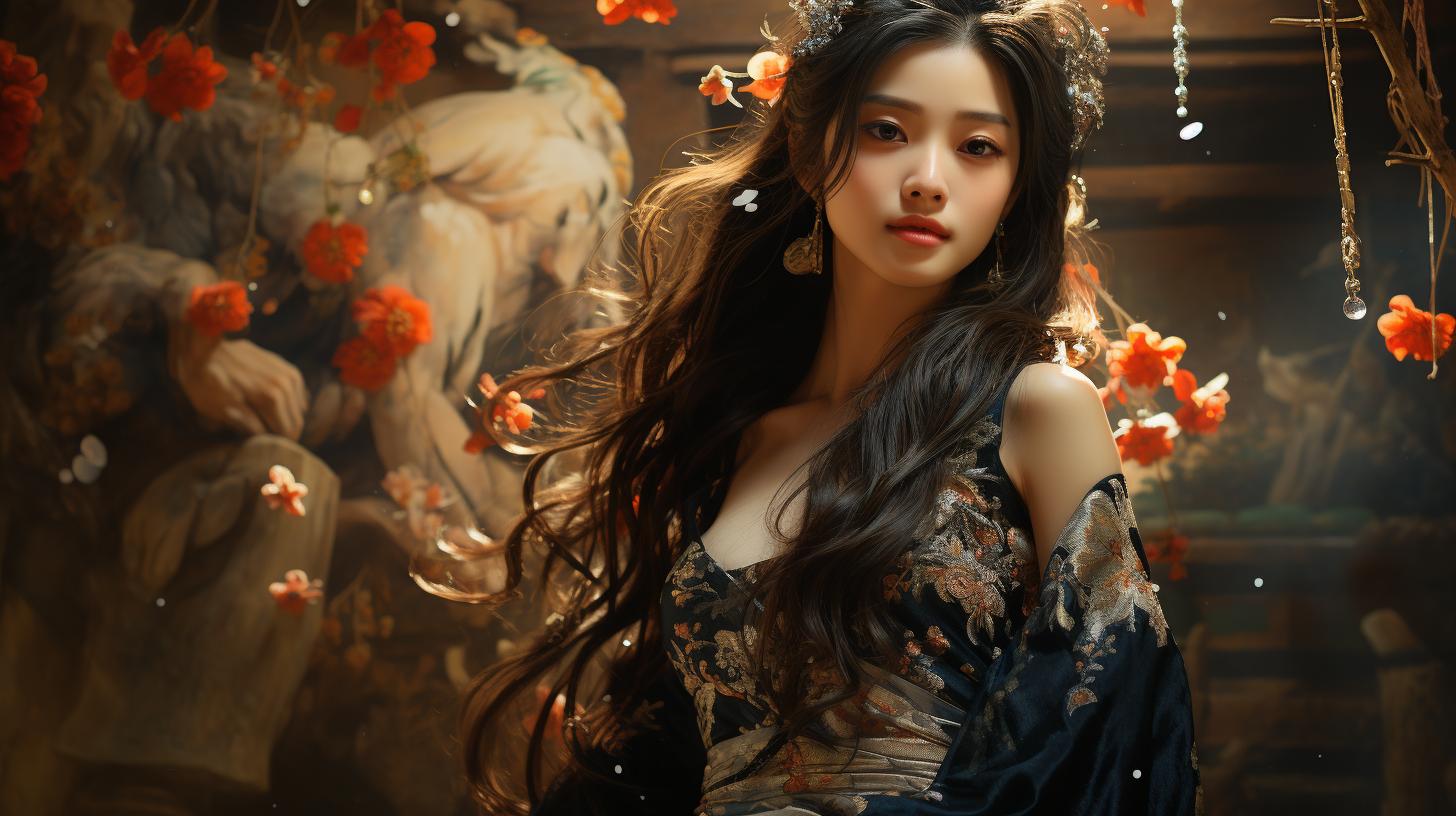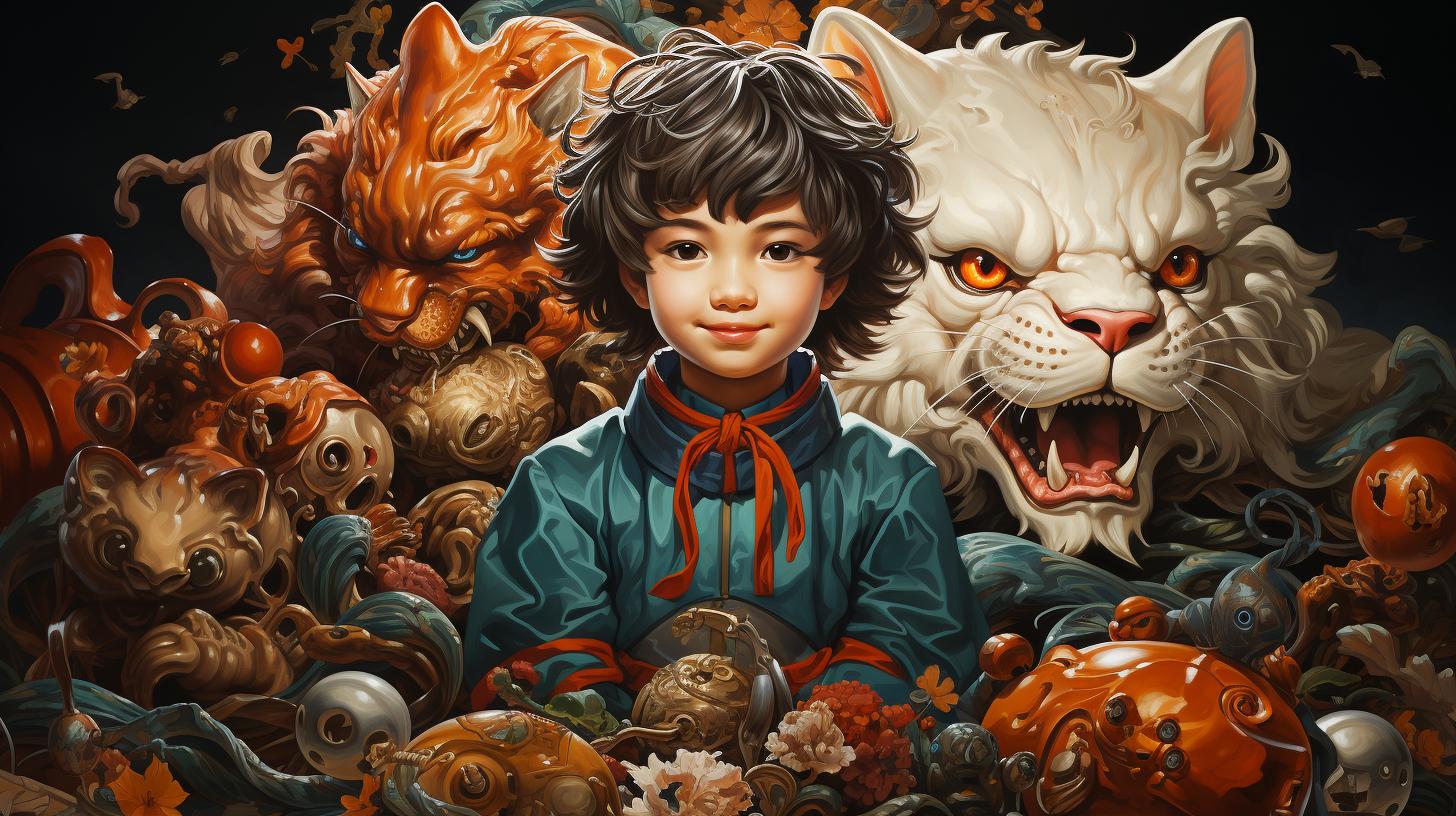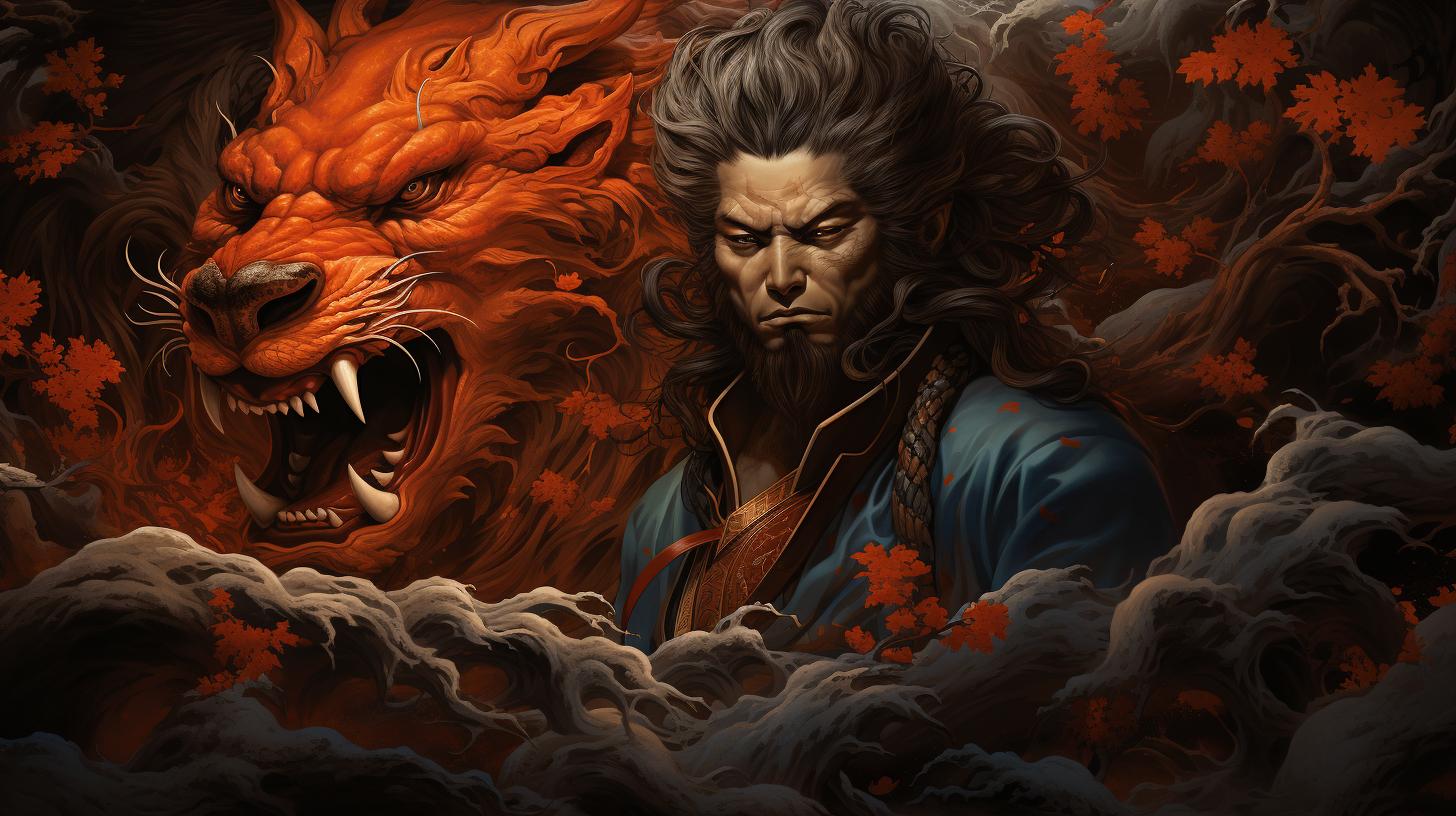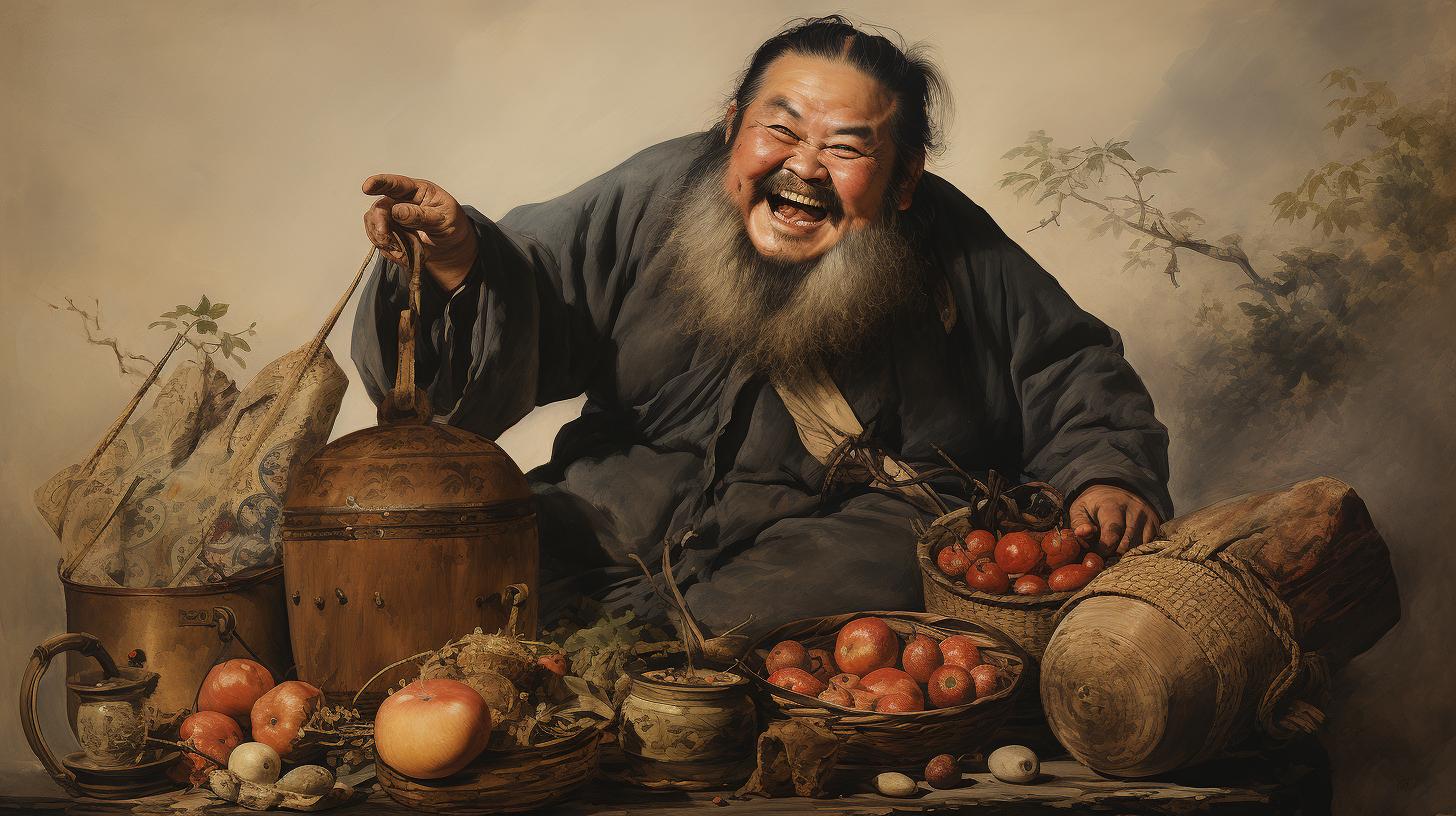Benten Japanese Goddess: A Guide to the Mythology and Cultural Significance
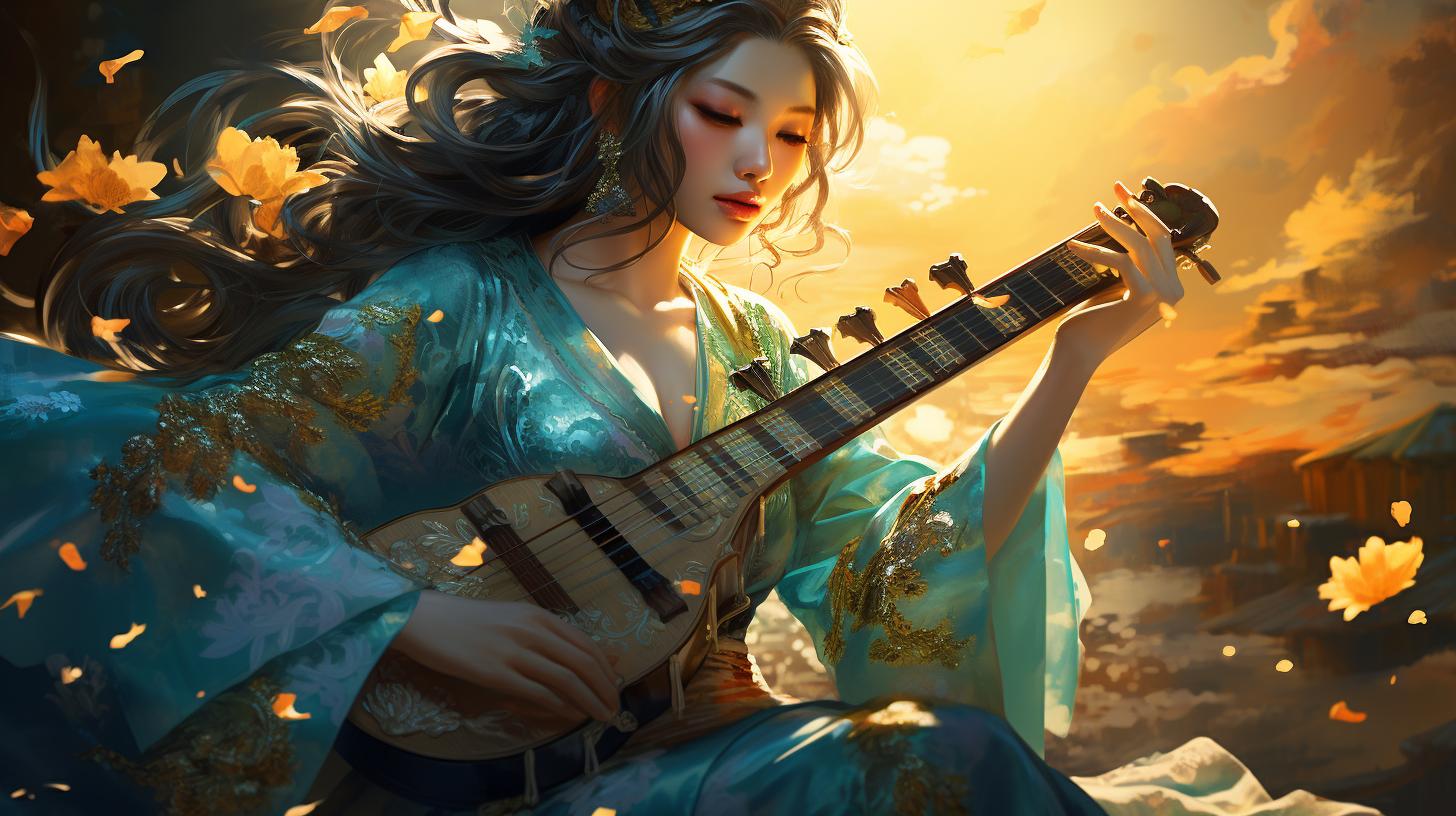
Benten Japanese Goddess is a central figure in Japanese mythology, revered for her connections to literature, music, wealth, and femininity. Believed to have originated from the Hindu goddess Saraswati, Benten has become an important deity in both Shinto and Buddhist religions in Japan.
She is often depicted as a beautiful young woman accompanied by a serpent and is associated with water, music, knowledge, and words. Benten is also one of the Seven Lucky Gods and has influenced traditional Japanese art and performing arts.
Origins of Benten in Japanese Mythology
Benten is a deity in Japanese mythology known for her association with literature, music, wealth, and femininity. However, her origins can be traced back to the Hindu goddess Saraswati. Saraswati is the Hindu goddess of knowledge, music, and the arts, and is often depicted holding a stringed musical instrument called a Veena and a book in one hand, signifying the importance of both the arts and knowledge.
As Buddhism spread from India to China and Korea, the goddess was also introduced to Japan via translations of the Sutra of Golden Light.
The Hindu Goddess Saraswati
Saraswati – the inspiration behind Benten – was first introduced to Japan around the 6th century CE. Saraswati‘s influence on Japanese mythology can be observed in the similarities between her and Benten.
Both goddesses are associated with similar domains such as music and literature. Additionally, they both have an emphasis on knowledge and wisdom.
Hindu influence on Japanese Buddhism
Buddhism first made its way to Japan via Korea during the sixth century CE, and it quickly blended with and added to the existing religious beliefs of Japan. Many Hindu deities, including Saraswati, made their way into Japanese Buddhist traditions.
These Hindu influences eventually merged with the indigenous Shinto religion to form what is now known as Shinto-Buddhism, which still continues to be practiced in much of Japan.
Arrival of Benten in Japan
The goddess Benten arrived in Japan during the 8th century CE, making her one of the newer additions to Japanese mythology. Her full name, Benzaiten, means “heavenly shrine goddess,” and reflects her place in both Buddhist and Shinto practice.
She quickly became popular and has since become a central figure in many temples and shrines throughout Japan.
The Attributes and Associations of Benten
Benten is a goddess revered in Japanese mythology for her unique attributes and associations. This section will explore her appearance, domains, and her associations with other deities and creatures.
Representations of Benten: Appearance and Iconography
Benten is often depicted as a young, beautiful woman, elegantly dressed and accompanied by a snake. She may also be represented as holding different objects such as a lute or biwa, a bow and arrow, or a sword.
Some of the most common objects Benten is associated with include a lotus flower, which symbolizes purity, and a white snake, which embodies her connection to water and knowledge.
In many depictions, Benten is shown riding a dragon, a symbol of fertility and the sea, her husband in Japanese mythology. This imagery emphasizes the connection of Benten with water and its flowing nature.
Benten’s Domains: Music, Literature, and Wealth
As a divine being, Benten presides over several domains, including music, literature, and wealth. Scholars believe that this is due to the goddess’ association with the Hindu goddess Saraswati, who is also associated with these domains.
Music
Benten is regarded as the patron of music and arts, especially those that aspire to capture the essence of water. Traditional Japanese music often features the biwa, a lute-like instrument associated with Benten, and water-themed pieces are particularly common.
Geishas and other performers often pay homage to this goddess during their performances.
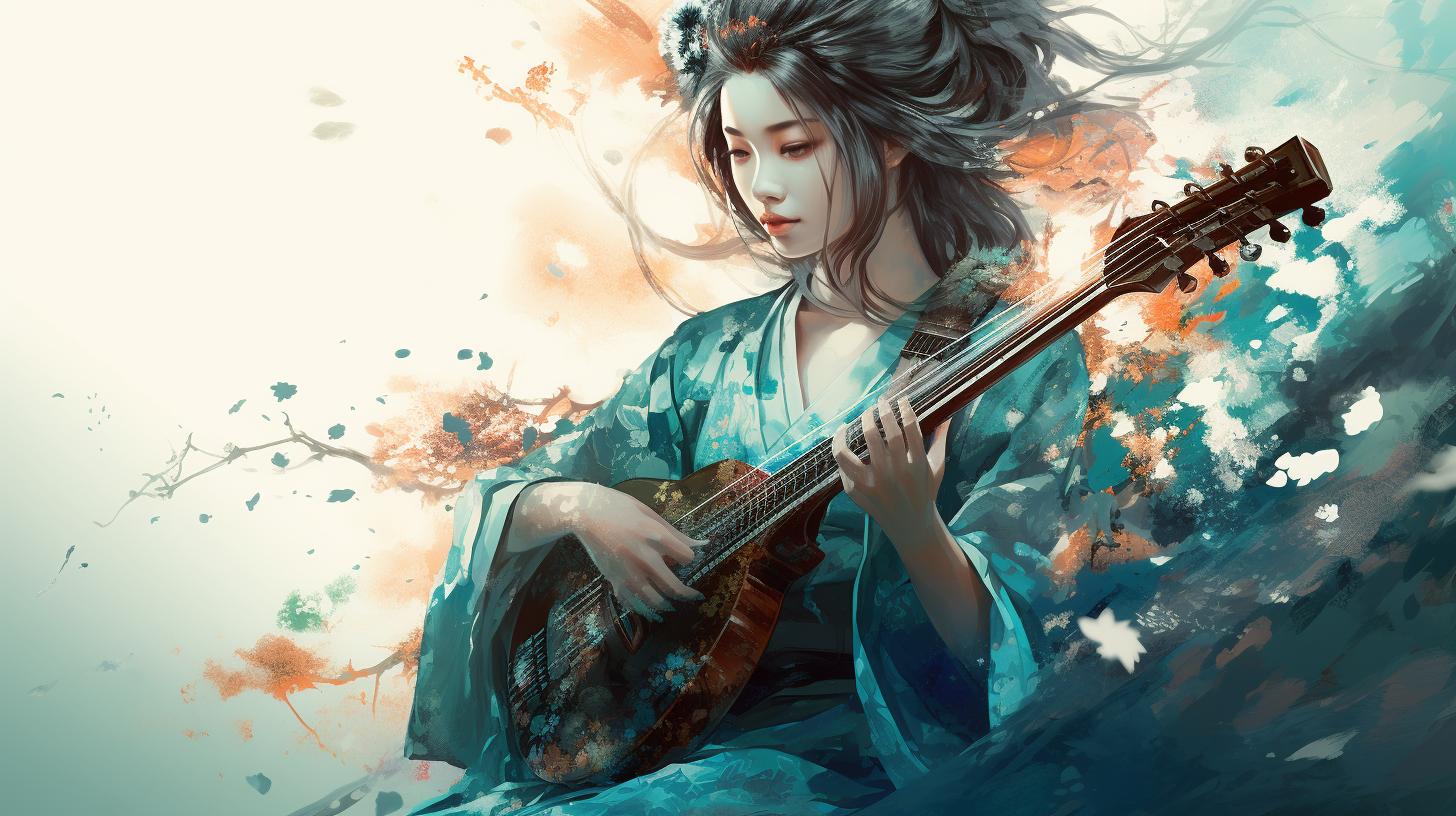
Literature
Benten is considered the deity of good fortune and is said to have the power to bestow eloquence and writing skills upon her followers. Even today, many Japanese writers, poets, and artists pay homage to this goddess in their work.
Wealth
Benten’s association with wealth is perhaps her most practical domain. She is a goddess who has the power to bestow prosperity and good fortune upon her devotees, and many Japanese businessmen, merchants, and fishermen have traditionally paid homage to her in hopes of improving their financial standing.
Associated Deities and Creatures
Benten is often associated with other deities and creatures, including the serpent deity Ugajin, and the Buddhist goddess Kisshōten. She is also linked with the appearance of comets in the sky, which scholars often interpret as auspicious signs of her divine presence.
One of the most interesting aspects of Benten’s associations is her connection to the Sea God Ryuujin, with whom she is often depicted riding a dragon. Ryuujin is the god of the ocean in Japanese mythology, and it is believed that Benten has the power to calm his wrath and ensure the safety of fishermen and sailors.
Conclusion
The attributes and associations of Benten are a testament to her rich legacy and multifaceted nature. Whether as the patron of music, literature, or wealth, or as a nurturing presence associated with water and the dragon deity Ryuujin, Benten’s power remains a vital force in contemporary Japanese culture.
Religious Significance of Benten in Japan
Benten is a revered figure in both Shinto and Buddhist religions in Japan. She is often associated with good fortune, wealth, knowledge, and music. In this section, we will examine the religious significance of Benten, including Shinto shrines dedicated to her, Buddhist temples associated with her, and festivals celebrating her.
Shinto Shrines Dedicated to Benten
There are several Shinto shrines in Japan dedicated to Benten, including the Enoshima Shrine, located near Kamakura. This shrine is dedicated to the goddess and her husband, the dragon-god of the sea, and attracts many visitors every year.
Another important Benten shrine is the Shinmei Shrine in Horyuji, where devotees go to pray for creativity, fertility, and good fortune.
Buddhist Temples Associated with Benten
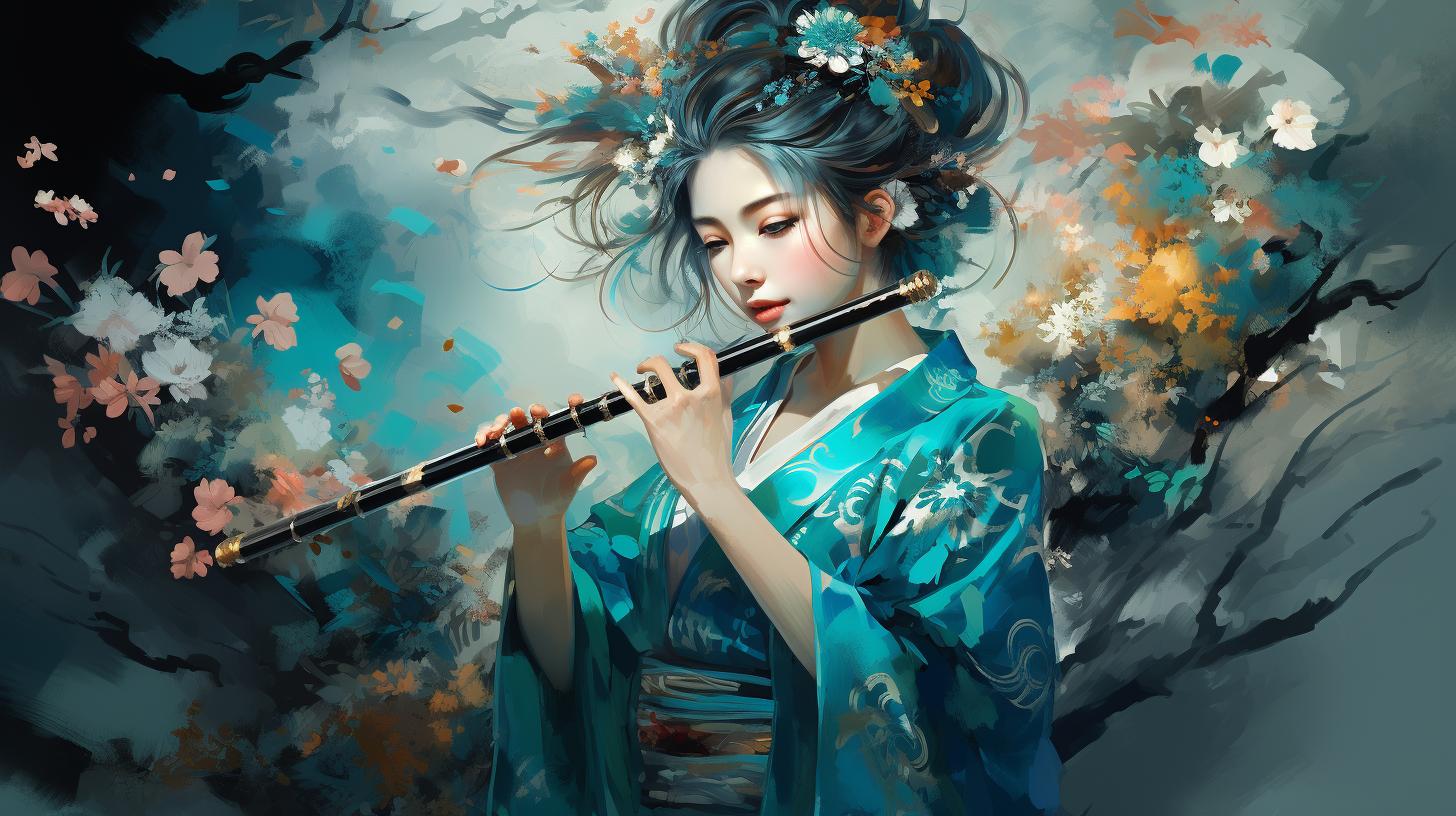
Benten is also worshiped in Buddhist temples throughout Japan. One of the most important temples is the Daigoji Temple in Kyoto, which has a rich history and was founded during the Heian period.
Benten is enshrined in the temple’s Benten Hall, along with other important Buddhist deities. The temple’s famous cherry blossom garden is a popular destination for tourists.
Festivals and Celebrations Honouring Benten
There are many festivals and celebrations in Japan that honour Benten. One such festival is the Enoshima Tenno Festival, held in September at the Enoshima Shrine. During the festival, a parade is held to honour the goddess and her husband.
Another important festival is the Daikoku Festival, held in January at the Asakusa Shrine in Tokyo. This festival honours the Seven Lucky Gods, including Benten, and is a time for people to pray for good fortune and prosperity.
- Enoshima Shrine: a Shinto shrine dedicated to Benten and her husband
- Shinmei Shrine: another Shinto shrine dedicated to Benten
- Daigoji Temple: a Buddhist temple with a Benten Hall
- Enoshima Tenno Festival: annual festival in September honouring Benten and her husband
- Daikoku Festival: annual festival in January honouring the Seven Lucky Gods, including Benten
Overall, Benten is an important figure in Japanese religion and culture, and her significance can be seen in the many shrines, temples, and festivals dedicated to her throughout the country.
Benten in Art and Culture
4. Benten in Art and Culture
Benten’s cultural significance is reflected in the abundance of artistic representations she has inspired throughout history, ranging from traditional Japanese art to modern pop culture references. This section explores how Benten has influenced artistic and cultural expressions in Japan and beyond.
Depictions of Benten in Traditional Japanese Art
Throughout Japan’s history, Benten has been a popular subject in traditional Japanese art. Her beauty and femininity have been captured in various mediums, including woodblock prints, paintings, sculptures, and ceramics. Benten is often depicted holding a biwa, a traditional Japanese lute, and riding on a dragon or a sea serpent.
She may also be seen surrounded by her various attributes, such as books, scrolls, music instruments, and flowers.
Influence of Benten on Japanese Performing Arts
Benten’s influence goes beyond visual arts and extends to Japanese performing arts as well. Kabuki, a form of traditional Japanese theater, frequently includes performances inspired by Benten and her legend. The famous kabuki play “The Soga Brothers and Benten Kozo” tells the tale of a group of thieves who extorted food and money from travelers on the highway under the guise of being the disciples of Benten.
Music and dance performances have also been influenced by Benten, with songs and dances dedicated to her and her domains of music, literature, and wealth.
Pop Culture References to Benten
Benten’s popularity continues to be reflected in modern pop culture. She has been featured in anime, manga, and video games, often portrayed as a powerful and beautiful warrior goddess. For example, in the anime and manga series “Love Live!”, one of the main characters, Umi Sonoda, is portrayed as a devoted follower of Benten, and some of her costumes and dance moves are inspired by the deity.
Benten has also made appearances in video games such as “Final Fantasy IV” and “Persona 5”, where she is often depicted as a magic user with control over water and music.
Benten and the Seven Lucky Gods
Benten is one of the Seven Lucky Gods, a group of deities worshipped in Japan for their auspicious powers. The Seven Lucky Gods have been revered in Japanese folklore since the Edo period, and continue to be an important part of Japanese culture today.
In this section, we will explore the origins and significance of the Seven Lucky Gods, Benten’s connection to the group, and the shrines and temples dedicated to their worship.
Origins and Significance of the Seven Lucky Gods
The Seven Lucky Gods, or Shichifukujin, are a group of deities that are believed to have the power to bring good luck, prosperity, and happiness to those who worship them. They are comprised of seven gods and goddesses from both Japanese and Indian mythology, including Ebisu, Daikokuten, Bishamonten, Fukurokuju, Jurōjin, Hotei, and Benten.
The group is believed to have originated during the Kamakura period (1185–1333), when the seven gods were worshipped separately in different regions of Japan. It was not until the Edo period (1603–1868) that the Seven Lucky Gods were worshiped collectively as a group.
Benten’s Association with the Seven Lucky Gods
Benten is the only female deity among the Seven Lucky Gods and is associated with wealth, music, literature, and femininity. Her association with the group dates back to the Edo period, and she is often depicted alongside the other gods in Japanese art and literature.
Benten is often regarded as the most popular and influential of the Seven Lucky Gods due to her connection with creativity and the arts.
Shrines and Temples Dedicated to the Seven Lucky Gods
There are many shrines and temples dedicated to the Seven Lucky Gods in Japan, each with their unique traditions and customs. Benten is often worshipped alongside the other deities in these places of worship.
One of the most prominent is the Tsurugaoka Hachimangu Shrine in Kamakura, which holds an annual festival known as Shichifukujin Meguri, during which participants visit the seven shrines dedicated to each of the Seven Lucky Gods.
Another notable location is the Enoshima Shrine in Fujisawa, which is dedicated to Benten herself and is believed to have been founded more than 1,500 years ago. Visitors to the Enoshima Shrine can enjoy panoramic views of the surrounding area and make offerings to Benten at her shrine.
…











